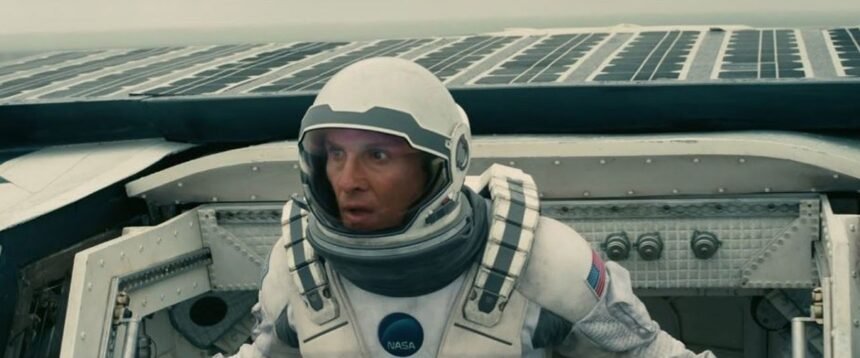In Christopher Nolan’s “Interstellar,” the film’s frenetic pace and booming soundtrack may initially overwhelm viewers. The characters often engage in lengthy expository dialogue and serve as mouthpieces for philosophical debates. Despite these typical Nolan traits, “Interstellar” manages to captivate and impress, melting away any objections one may have to the director’s style.
The movie portrays a pure and powerful story, unlike any science fiction film marketed as a multiplex blockbuster. Major characters openly weep in close-ups, their voices breaking and tears streaming down their cheeks. Matthew McConaughey’s widowed astronaut, Cooper, and Anne Hathaway’s colleague, Amelia Brand, express profound grief and vulnerability as they journey through space. Even characters like Michael Caine’s astrophysicist and an unnamed space explorer display raw emotions of loneliness and doubt seldom seen in Nolan’s films.
“Interstellar” blends state-of-the-art sci-fi landscapes with heartfelt messages about the importance of human connection and the pursuit of basic desires. It delves into the horror of separation experienced when loved ones are taken away by death, illness, or immeasurable distances. The film’s widescreen panoramas depict harsh interplanetary landscapes, shot in real Earth locations, and showcase meticulously crafted starship miniatures. The space sequences are presented in scientifically accurate silence reminiscent of “2001: A Space Odyssey.”
Despite its high-tech visuals, “Interstellar” possesses an old-movie charm, effortlessly switching between different storytelling modes. It seamlessly transitions from bruising outer-space action to snappy comic banter and from long explanatory sequences to tearful reunions, reminiscent of classic films. McConaughey’s intense performance perfectly embodies the film’s spirit, blending the qualities of an engineer, astronaut, and goofball poet.
The film’s masterstroke lies in its exploration of the relativity of time. As the astronauts traverse space, time passes differently for them compared to those on Earth. Every decision becomes crucial, as arguments or delays can result in significant losses and missed opportunities. Time emerges as the central theme, highlighting the fear and defiance inherent in every character’s actions.
In summary, “Interstellar” is a visually stunning and emotionally powerful science fiction epic. Christopher Nolan’s signature style and storytelling techniques are on full display, but the film goes beyond expectations, immersing viewers in a thought-provoking exploration of love, loss, and the human spirit’s indomitable will to survive.











